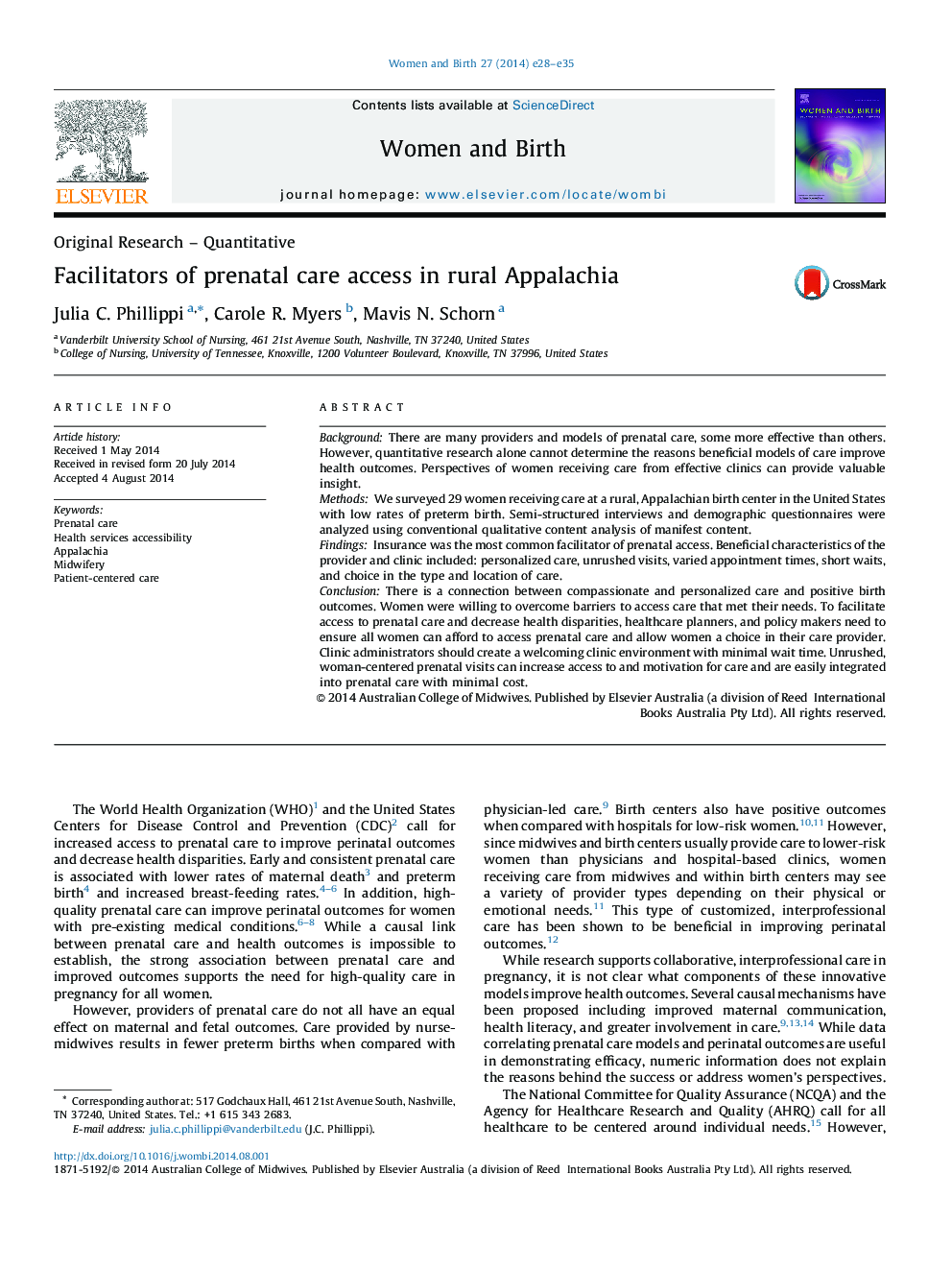| Article ID | Journal | Published Year | Pages | File Type |
|---|---|---|---|---|
| 2636008 | Women and Birth | 2014 | 8 Pages |
BackgroundThere are many providers and models of prenatal care, some more effective than others. However, quantitative research alone cannot determine the reasons beneficial models of care improve health outcomes. Perspectives of women receiving care from effective clinics can provide valuable insight.MethodsWe surveyed 29 women receiving care at a rural, Appalachian birth center in the United States with low rates of preterm birth. Semi-structured interviews and demographic questionnaires were analyzed using conventional qualitative content analysis of manifest content.FindingsInsurance was the most common facilitator of prenatal access. Beneficial characteristics of the provider and clinic included: personalized care, unrushed visits, varied appointment times, short waits, and choice in the type and location of care.ConclusionThere is a connection between compassionate and personalized care and positive birth outcomes. Women were willing to overcome barriers to access care that met their needs. To facilitate access to prenatal care and decrease health disparities, healthcare planners, and policy makers need to ensure all women can afford to access prenatal care and allow women a choice in their care provider. Clinic administrators should create a welcoming clinic environment with minimal wait time. Unrushed, woman-centered prenatal visits can increase access to and motivation for care and are easily integrated into prenatal care with minimal cost.
